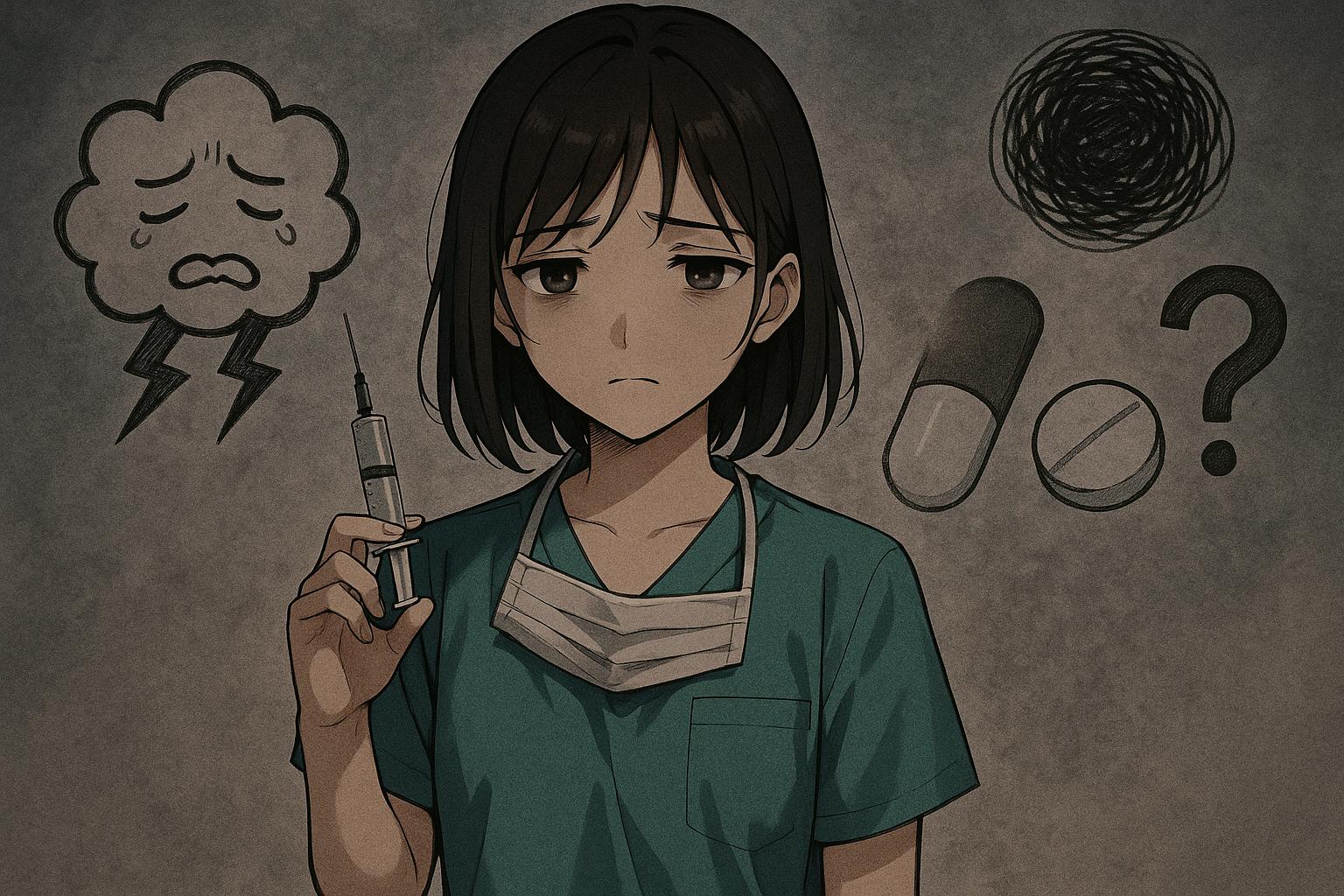Faith Burke's experience during the Covid-19 pandemic encapsulates the complexities surrounding vaccine acceptance and the potential for adverse reactions. At just 20 years old, Burke found herself navigating the challenges of frontline healthcare work as a trainee pharmacist assistant in Wiltshire. The urgency of the moment pushed many, especially healthcare workers like Burke, to comply with vaccine mandates. Amid reports of severe vaccine efficacy and safety, Burke assured herself that the vaccine would be a safe choice, despite her parents’ concerns.
On 15 January 2021, Burke received her first dose of the Pfizer-BioNTech Covid-19 vaccine. She describes feeling a significant social pressure to get vaccinated, believing that opting out would make her an outlier among colleagues. “If you didn’t have the vaccine, you were treated almost like a leper,” she recalls. Initial optimism swiftly turned into distress as she developed severe allergic reactions following her vaccination—a situation that, while rare, was not unprecedented.
Research indicates that adverse reactions to Covid-19 vaccines can occur, especially among individuals with pre-existing allergies. A CDC report documented 21 cases of anaphylaxis in the United States occurring after the Pfizer-BioNTech vaccine, with a rate of 11.1 cases per million doses administered. Most reactions happened shortly after vaccination, highlighting the necessity for proper monitoring post-injection. Faith's symptoms escalated alarmingly—rashes, swelling, and chest pain culminating in a hospital admission where her condition was initially misdiagnosed.
The medical community's cautious stance on vaccine-related adverse events, grounded in overwhelming data showing the safety and efficacy of vaccines, often leaves those like Burke feeling isolated in their experiences. Burke’s journey post-vaccination has been difficult; her condition, described as a post-vaccination syndrome, has led to ongoing health problems, significantly diminishing her quality of life.
Today, at 24, Burke grapples with chronic pain and fatigue, preventing her from enjoying activities she once loved, such as competitive dancing and gym workouts. This infliction on her health and aspirations underscores the broader issue of how adverse reactions can derail young lives. The narrative shifts from the singular experience to the collective responsibility of the medical community in addressing potential adverse effects openly.
Contrary to the opinions of some healthcare professionals who downplay the experiences of young patients like Burke, those reporting adverse reactions deserve acknowledgment and investigation. She maintains that while she understands the critical necessity for vaccinations to mitigate pandemic effects, her own reaction has left her both physically disabled and emotionally burdened. “I regret having this vaccine,” she admits, adding that she never identified as anti-vaccine, having been compliant with vaccinations throughout her life.
The duality of Faith's experience—though rare—does resonate within the dialogue surrounding vaccines. According to the World Health Organisation, vaccines saved an estimated 14.4 million lives in 2021 alone, and major pharmaceutical companies like Pfizer assert their commitment to patient safety and rigorous monitoring of vaccine-related adverse events. Nevertheless, Faith’s plight illustrates an urgent need for transparency and support systems for individuals grappling with the aftermath of unexpected vaccine complications.
As Burke awaits further medical consultation to investigate her ongoing symptoms, she highlights the importance of sharing her story not for compensation but to raise awareness. Advocacy from affected individuals can drive essential conversations about vaccine safety protocols and the necessity for monitoring at vaccination sites. In navigating both the social pressures of vaccination and the serious consequences of bodily autonomy, Burke's story serves as a poignant reminder of the diverse outcomes experienced by individuals during the pandemic.
With the continuing evolution of understanding Covid-19 and its multifaceted impact on health, the narratives of individuals like Faith Burke remain crucial in informing policies and practices regarding vaccination protocols in the future.
Reference Map
- Paragraphs 1, 2, 3, 4, 5, 6
- Paragraph 4
- Paragraph 4
- Paragraph 4
- Paragraph 4
- Paragraph 3
- Paragraph 6
Source: Noah Wire Services
